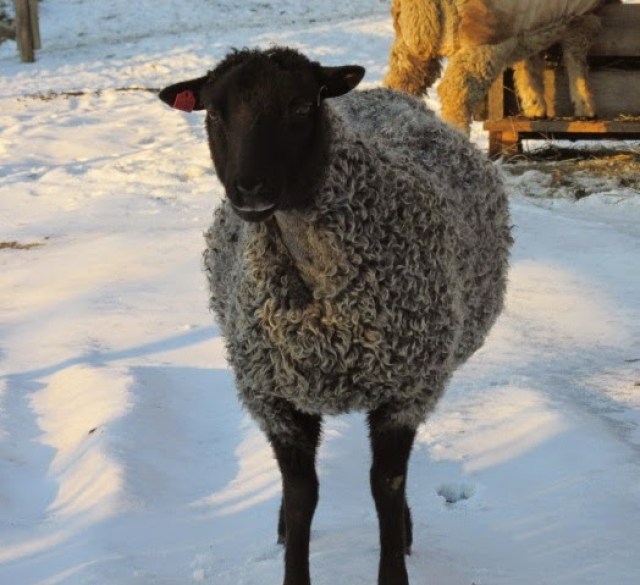OPP, a viral infection in sheep, manifests itself in many different ways. Symptoms include weight loss and an inability to gain weight back after lambing, difficulty breathing, joint problems and lameness, and unproductive udders. Often, a ewe with OPP will lag behind the rest of the flock, have trouble breathing when moving, and her lambs will have poor weight gain. She may develop what is called “hardbag” where her udder seems full of milk, but is unproductive. She may also develop pneumonia, but then not respond well to the antibiotic.
As I reviewed our lambing history, I began to see symptoms which concerned me. I had tested our original flock many years ago, but had not done testing in quite a while. Every flock seems to have their under weight ewe, one ewe who lags behind for one reason or another, and lambs who do not seem to grow out well one year. When you begin to see these symptoms over time, however, you need to investigate a bit further.
 |
| Shearing the neck allows the vet to take a blood sample easily. |
Diagnosing for OPP with a blood test called Agar Gel Immunodiffusion Test, or AGID, determines if the sheep has antibodies or the virus present in their blood. Though the virus is most commonly passed laterally between the ewe and her lamb through the colostrum, only sheep over the age of 6 months will show antibodies.
Since we would be bringing new sheep to our farm, and I had already gotten rid of many of our “problem” breeding ewes, I felt it a good time to test for OPP. I tested our remaining Romney sheep and the two Gotland lambs we purchased late summer. Since the ewes were in fleece, we sheared the neck so that the vet would be able to get a blood sample easily. Within one week, we received our lab results. All sheep tested negative for OPP! We will repeat the testing in 6 months. All of our Gotland sheep will be on the farm at that time and so we will be able to include them in the testing as well.
The OPP Sheep Breeders Society is an organization dedicated to educating the public about OPP. Their website has useful information about the disease as well as useful links, and articles outlining the latest research.
Have you had your flock tested for OPP?

